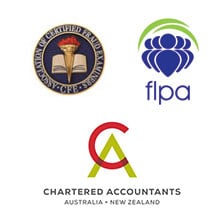Fraud Report: ACFE 2020 RTTN

Fraud
Fraud, is it happening in your backyard?
With Christmas just around the corner, do you suspect that someone is getting an unwarranted bonus?
Are you a business owner or an employee of an establishment where you have a niggling gut feeling that there is something not quite right about someone or something in that business ?
Read the latest ACFE 2020 Report to the Nations as it offers you an insight into the world of fraud and the common processes of fraudulent transactions.
Don’t have time to read the full report right now, then we have you covered as the team at Forensic Accounting Qld have set out below a few snippets from this years’ 2020 report.
We wanted to highlight in particular the not for profit sector and small business’s in relation to COVID-19. The inevitable financial hardships to follow as a result of the pandemic will be the catalyst and motivation for many an individual/individuals to perpetrate a fraud if the opportunity is there.
Fraud in Not for Profit Organisations.
Not for profit organizations can be more susceptible to fraud due to having fewer resources available to help prevent and recover from a fraud loss. This sector is particularly vulnerable because of less oversight and a lack of certain internal controls.
In 191 not for profit cases reviewed, the median loss was $75,000 with an average loss of $639,000.
In the table below you will see the Not for profit Occupational Fraud Schemes and the associated percentage of reported cases relating to that scheme:
| Not For Profit Schemes | Percent of cases |
| Corruption | 41% |
| Billing | 30% |
| Expense reimbursements | 23% |
| Cash on hand | 17% |
| Skimming | 15% |
| Check and payment tampering | 14% |
| Cash larceny | 12% |
| Payroll | 12% |
| Financial statement fraud | 11% |
| Register disbursements | 3% |
Who were the Perpetrators?
- Owners/Executives were responsible for 39% of the cases with a median loss of $250,000.
- Manager/Supervisor was responsible for 35% of the cases with a median loss of $95,000.
- Employees were responsible for 23% of the cases with a median loss of $21,000.
How were they detected ?
- 40% of cases were discovered by a tip or complaint.
- 17% discovered through an internal audit.
- 13% management review.
- 7% by accident.
- 6% through examination of documents.
Top 3 control weaknesses;
- 35% Due to lack of internal controls.
- 19% Lack of management review.
- 14% override of existing internal controls.
Small businesses anti-fraud controls;
The majority of small businesses face a different type of fraud risk than large organisations and therefore experience unique challenges in combating occupational fraud, including, resource limitations, a lack of awareness, and a tendency to place too much trust in their employees.
Small businesses implement anti-fraud controls at a much lower rate than their larger counterparts. The most common anti-fraud control- external audits of financial statements, was only in place at 56% of small businesses, and only 48% of these companies had a code of conduct, compared to 92% and 91%, respectively, of organisations with more than 100 employees.
If you are a small business or a not-for-profit business, pay attention to what the administration procedures are/are not in your workplace and who is doing them.
Be aware, don’t be vulnerable to fraud!
Ensure all your preventative measures are in place to help mitigate fraud happening in your work place and help stop the devastation of businesses, their families and the broader community.
Be aware of the signs:
THE RED FLAGS OF FRAUD
Understanding and recognising the behavioural red flags displayed by fraud perpetrators can help organisations detect fraud and mitigate losses.
Question; What are the 6 behavioural red flags most common in studies dating back to 2008?
Answer;
- Living beyond means,
- Financial difficulties,
- Unusually close association with vendor/customer,
- Unwillingness to share duties,
- Divorce or family problems; and
- Wheeler dealer attitudes.
Steven Ponsonby the Director of Forensic Accounting Qld is a Certified Fraud Examiner. He witnesses first hand the domino effect fraud has on businesses, their family members and the communities. He is a strong advocate in the fight to stop fraud, his investigative skills and demonstrative evidence provide compelling reports to assist the Courts in seeking restitution of monies and/or sentencing of criminals for his clients.
Help stop fraud in your community now? IF YOU SEE SOMETHING, SAY SOMETHING!

